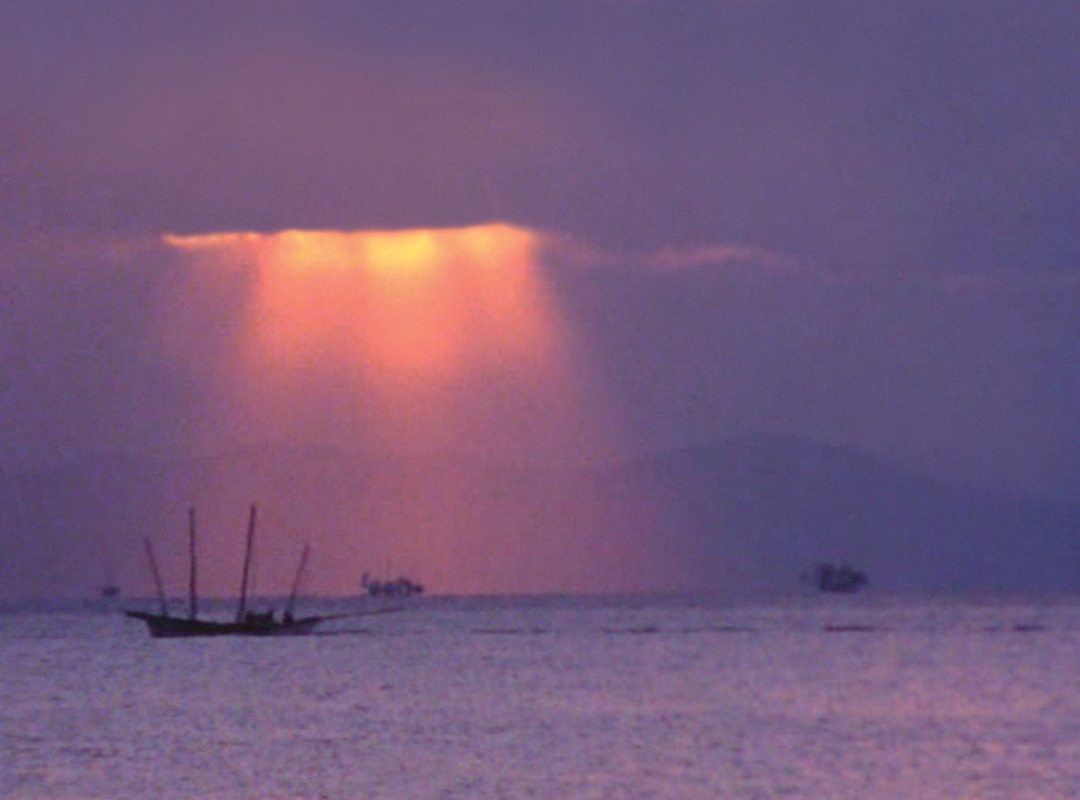05: The Shiranui Sea
In the framework of DISSENT !, an initiative of Courtisane, Auguste Orts and Argos.
Courtisane is een platform voor film en audiovisuele kunsten. In de vorm van een jaarlijks festival, filmvertoningen, gesprekken en publicaties onderzoeken we de relaties tussen beeld en wereld, esthetiek en politiek, experiment en engagement.
Courtisane is a platform for film and audiovisual arts. Through a yearly festival, film screenings, talks and publications, we research the relations between image and world, aesthetics and politics, experiment and engagement.
In the framework of DISSENT !, an initiative of Courtisane, Auguste Orts and Argos.

As Tsuchimoto continued to make films about the fishing populations around the Minamata area, he started to turn his camera to the sea and to the reality of the people’s daily life. The sea that carried the disease also provided the livelihood of these populations, who for generations had relied on traditional fishing for their sustain. The film was made after the first court victory of the people against the state, and it tries to establish a comprehensive exposé of the Minamata situation throughout the years. There is an almost inexplicable intensity and grace to the way Tsuchimoto draws a portrait of these people, filmed with empathy and respect. The Shiranui Sea is a lyrical tribute to the people’s resilience and a film of healing, which establishes the caring dimension of Tsuchimoto’s cinema: an intimate, timehoned and collaborative way of filmmaking, deeply sensitive and alert.
“Remarkably, this film is the first to give sustained attention to the great natural beauty of this ever-calm inland sea. Shot almost exclusively on brilliant sunny days, it introduces the viewer to a variety of traditional fishing methods, the ingenuity of which is almost as stunning as their setting. It exposes the fact that although fishing had stopped in Minamata Bay, it continued basically unchanged on the wider Shiranui Sea. The viewer is treated to shots of the fishermen preparing a feast of fish they have caught, and thanks to Tsuchimoto’s unerring empathy this comes across as less shortsighted than it might otherwise. For people whose lives and communities have been shaped around fishing and who have enjoyed a daily bounty of fresh fish since childhood, it is simply impossible to give it up. It is the substance of their work, the fabric that ties them to the world.” — Justin Jesty
Japanese spoken with English subtitles